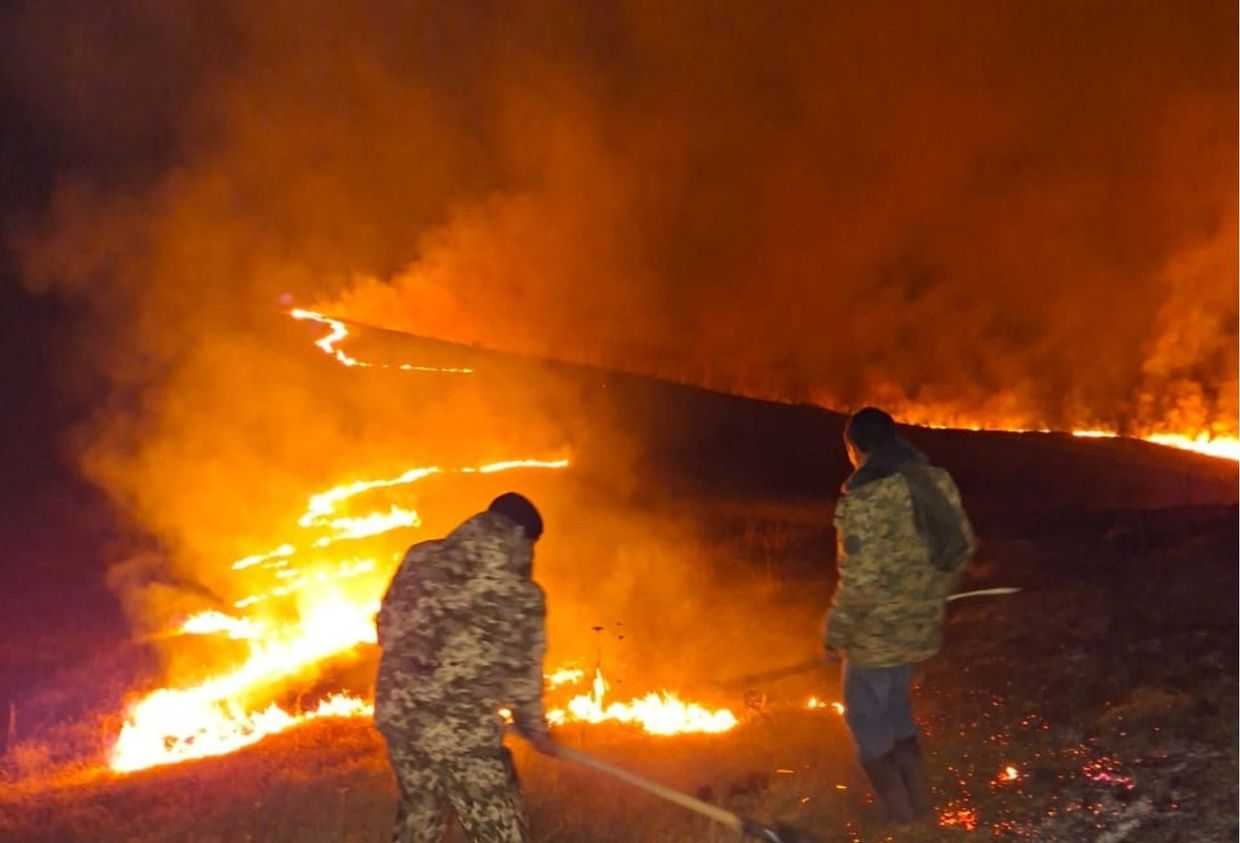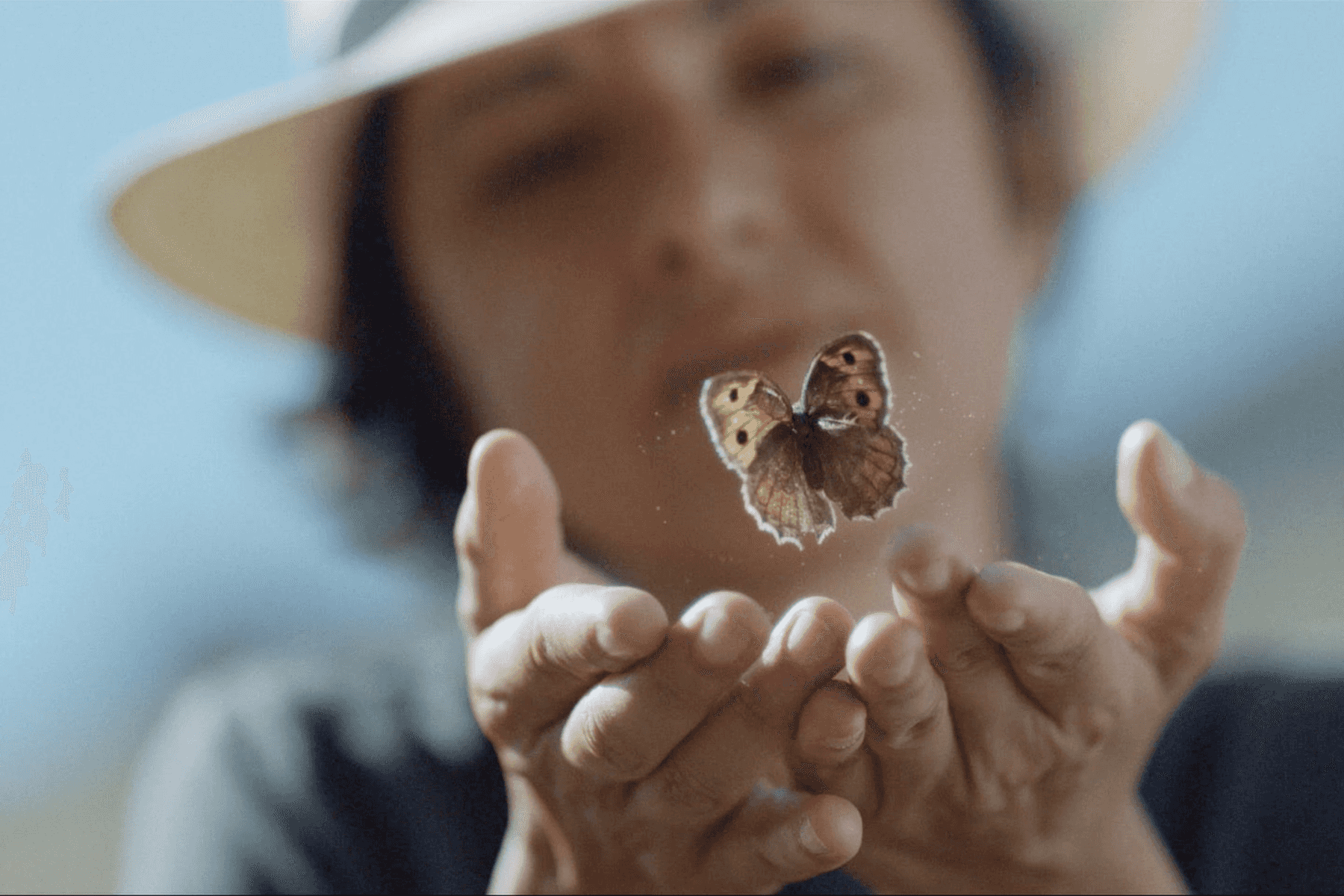Government idle as mining companies wreck the environment in Georgia’s ‘sustainable development’ [Opinion]
![Government idle as mining companies wreck the environment in Georgia’s ‘sustainable development’ [Opinion]](/_next/image/?url=https%3A%2F%2Foc-media.org%2Fcontent%2Fimages%2Fwordpress%2F2019%2F12%2FSakdrisi-Kazreti-Cropped-scaled.jpg&w=3840&q=90)
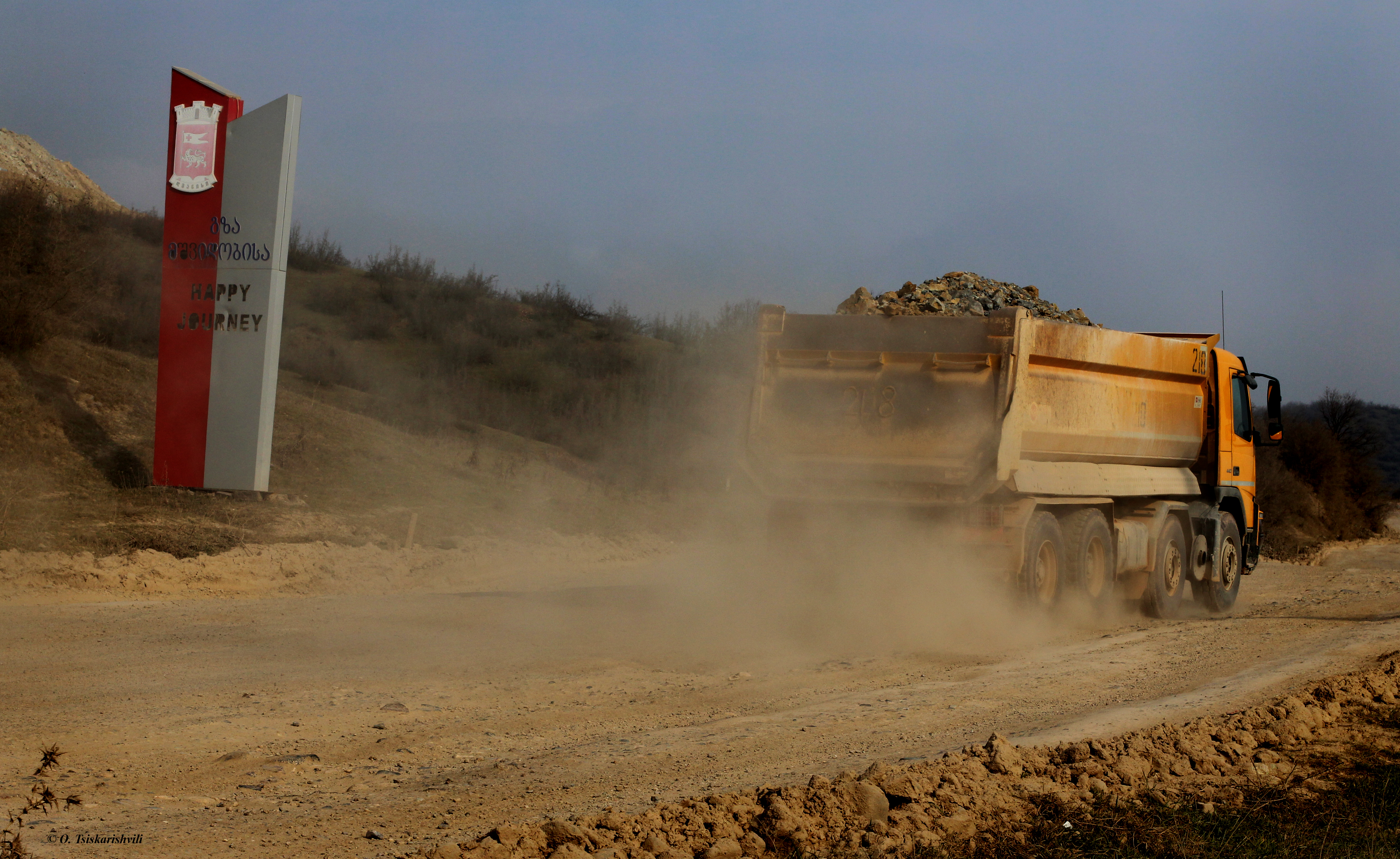
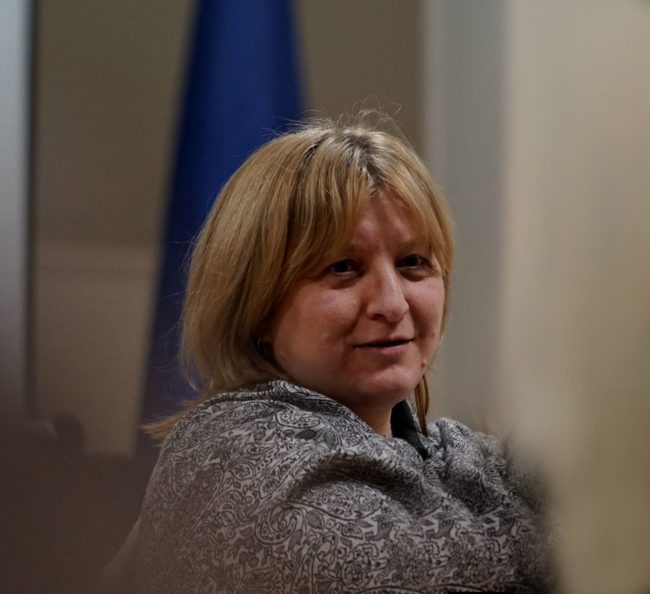
Extraction of Gold and Copper by mining company RMG in southern Georgia is doing irreparable damage to the environment. Landscapes, forests, and entire ecosystems are being completely wiped out, but both the company and the government claim it is all a part of Georgia’s ‘sustainable development’.
‘If you cut-down an entire forest, it would grow back, but they have dug deep into the mother rocks — this is the worst form of foresting’, environmental activist Irakli Macharashvili explains the condition of the Sakdrisi goldmine site in southern Georgia.
Sustainable development is a priority for Georgia’s government, this means that no industrial activity should have a negative impact on the environment, but most large mining companies in Georgia ignore environmental regulations, causing irreversible damage — the devastation of forests and soil, and pollution of air and water.
One of Georgia’s largest mining enterprises is located in Bolnisi Municipality, in southern Georgia. Mining in Bolnisi is carried out by Rich Metals Group, which is owned by Russian oligarchs and is divided into two companies, RMG Gold, run by Russian citizen Sergey Eganov, and RMG Copper.
RMG Gold and RMG Copper are the largest employers in Bolnisi Municipality. They employ about 3,000 people, 90% of whom are locals. In 2011–2014 RMG invested $300 million into the project.
A cultural monument destroyed
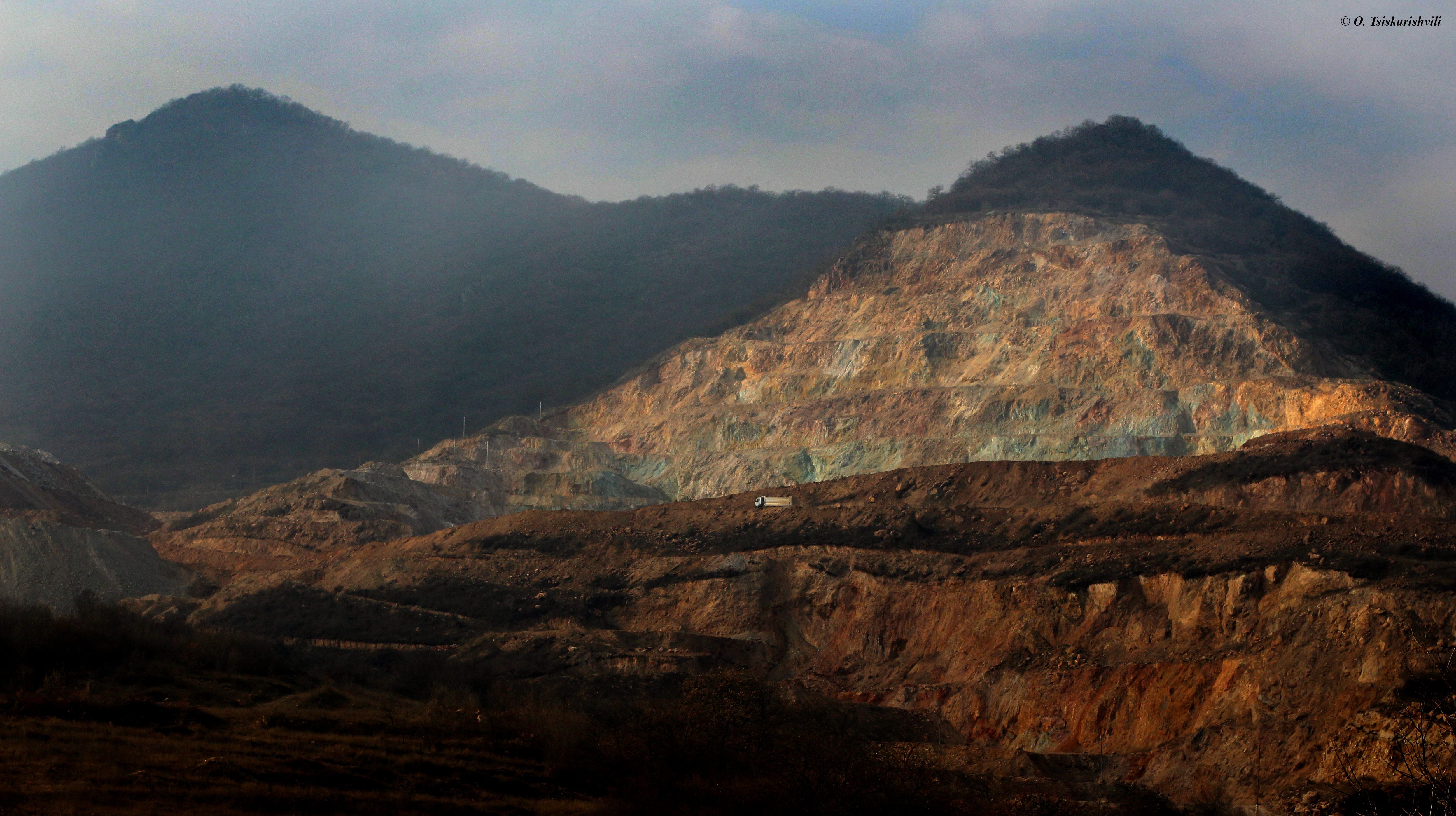
In 2004, research into an archeological site at the Sakdrisi gold mine concluded that it was the oldest known gold mine in the world, dating from the fourth century BCE. As a result, both local and international archeologists flocked to the site to carry out further research. The gold mine was granted the status of ‘cultural heritage’ by the Ministry of Culture, in 2006, but in 2013 the ministry unexpectedly abolished this status, leading to massive protests.
On 13 December 2014, RMG Gold completely destroyed the archeological with explosive works. Environmental activists protested for months, but the company continued to extract ore using heavy machinery.
According to Irakli Macharashvili from the Green Alternative, an environmental organisation, the even the company themselves had previously acknowledged the site’s importance.
‘Sakdrisi used to be an archeological site of national importance, which was recognised by the Russian company RMG Gold, and they were proud that they helped to discover the world’s oldest gold mine,’ Macharashvili says.
‘Then they decided that a few tonnes of gold are better than a good image, and decided to claim that there was no historical site. Then they blew up the site and declared that it used to be a historical site, but it was already devastated and there was nothing else to protect. And now there are active works in progress.’
How legal was it to devastate this historical site? — this is a completely different story, as no official government body officially granted permissions for this. How harmful the activities of RMG are to the environment is another matter.
Blowing-up Georgia’s forests
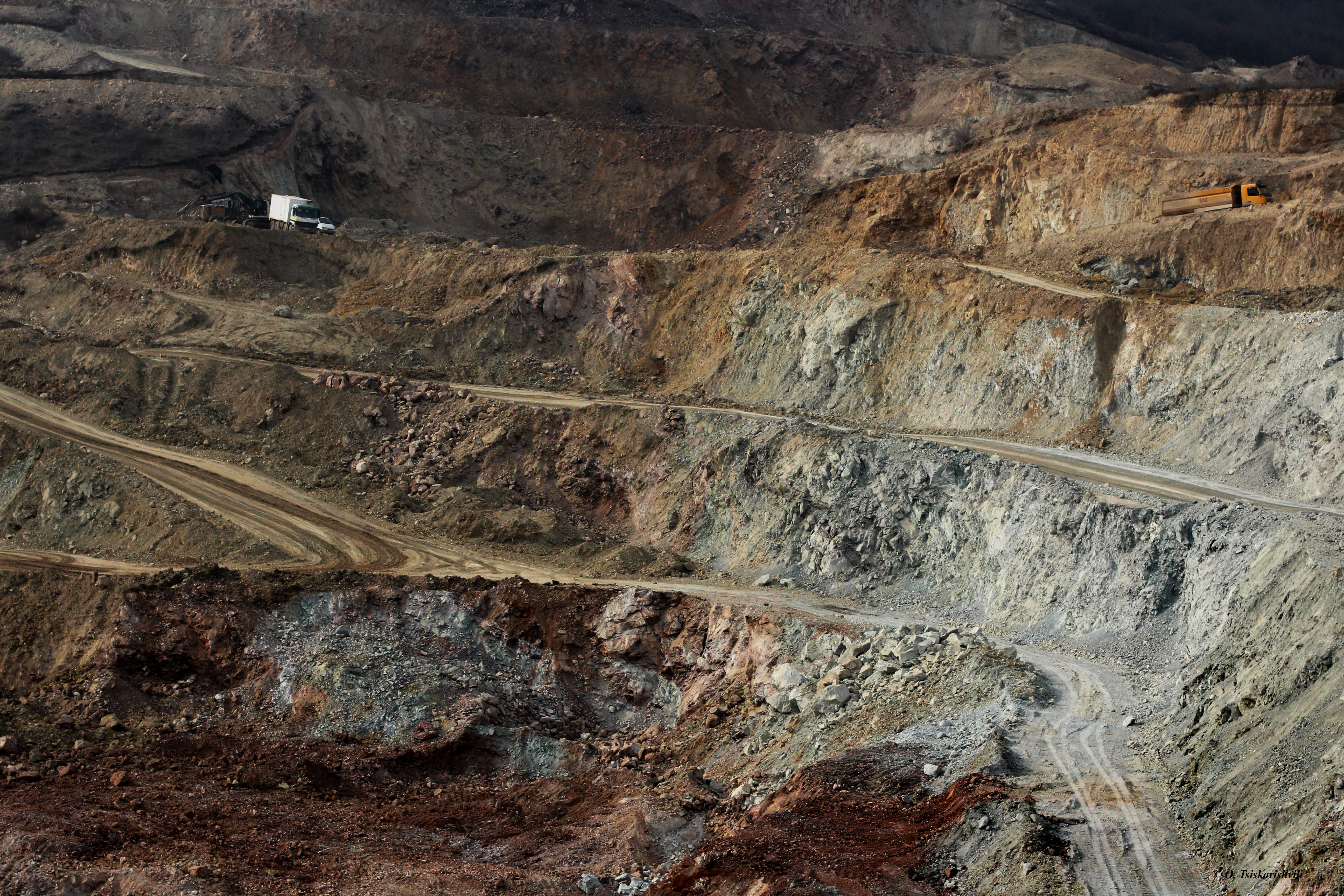
On their official website, RMG states that protection of the environment is one of their primary objectives.
‘We take full responsibility for protecting the environment and we will continue working in order to reduce adverse impacts on the environment to a minimum’, it reads. The site used to consist of deciduous forest and shrubbery. The major impact of mining is damage to the area’s landscape and vegetation, but is not limited to this.
The day we visited the site it was foggy, but still the air was thick with dust and smoke. Work was active at both extraction sites.
When the government grants a license to work on mining sites, it gives permission ‘to consume forest for a special aim’. But, still, there are certain requirements in place to preserve the forests. However at the RMC mining sites, the damage to the landscape is so severe that the forest no longer exist.
The company prefers extraction through explosions, instead of digging tunnels, which is acutely damaging to the environment; on top of polluted air and rivers, it completely devastates the prolific topsoil of an area, destroying the forests and ensuring that they cannot be recovered. It is impossible to restore the prolific part of the soil. Thus, long after mining at the site ends, the territory will remain barren and useless.
Macharashvili says that the forest will never grow there again. ‘This is irreversible degradation of the environment. It will never be restored as long as the earth will exist’, he said.
Industrial extraction of gold began in Georgia in 1950, and the town of Kazreti was built in 1970s to accommodate miners at the nearby copper mine, which now operates under RMC Copper.
According to Georgia’s Forest Code, adopted in 1999, it is prohibited to conduct extraction on high slopes, a rule that is completely ignored.
He explains that the mining industry is the worst for the environment, as it results in the total annihilation of habitats. Deciduous forest no longer exist where mining has occurred, and formerly thriving ecosystems have been transformed into stone deserts with no signs of life.
Poisoning the water and the air
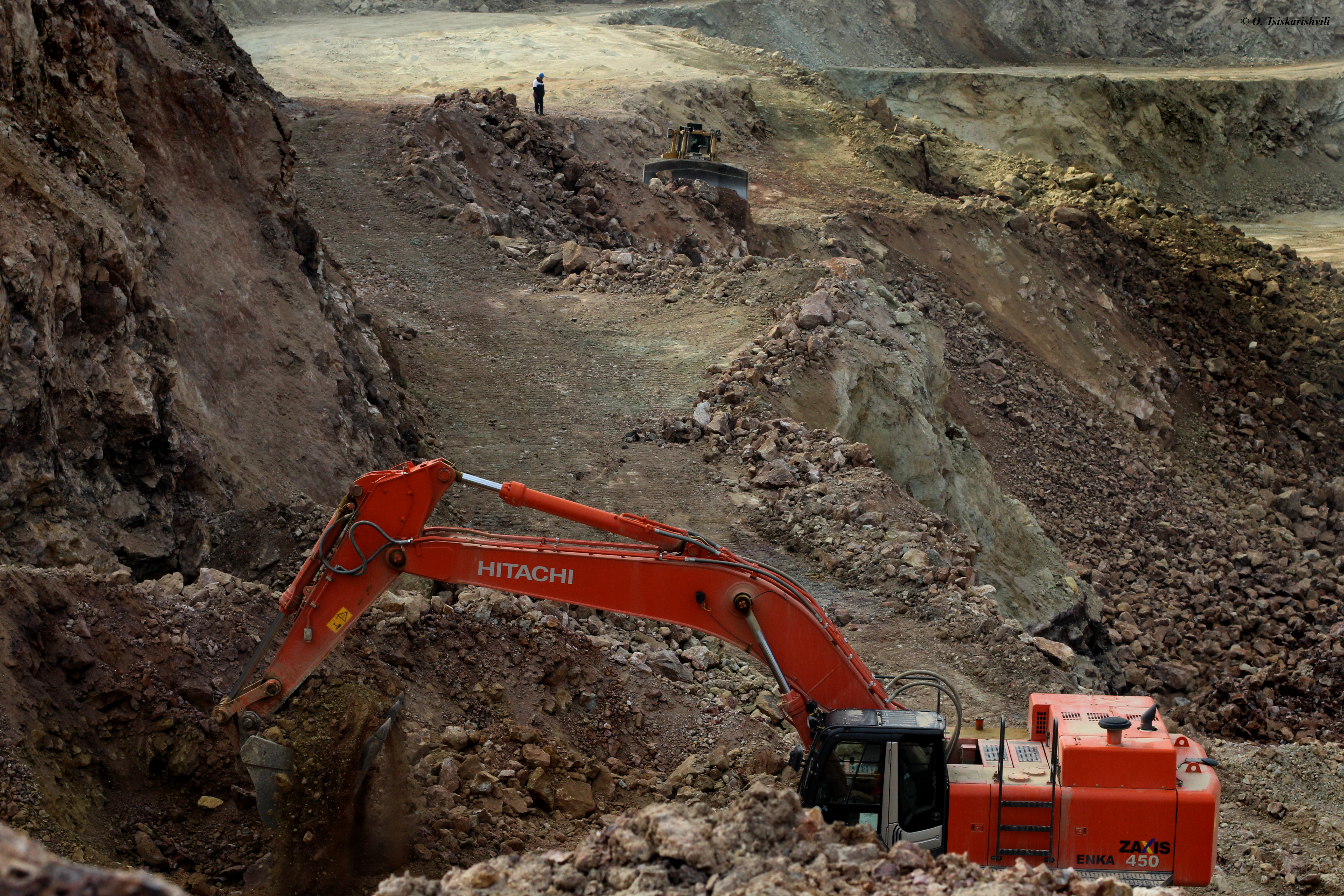
‘Ore extraction pollutes the air, as well as agricultural lands’, Macharashvili says.
Water polluted with cyanide and heavy metals flows into the River Mashavera, to the irrigation system, and finally into the fruit and vegetable that people eat.
RMC claims that they set up a new body of health, labour, safety, and environmental protection in 2012, and that they have prepared a new policy for environmental protection. They claim that they monitor the water every day, as well as the emissions of dust in the atmosphere, however, air and water pollution is visible to the naked eye.
Environmental activists claim that the RMG fails to implement effective social responsibility, as on top of the pollution, working conditions in the mines are difficult. Dust from their activities reaches populated areas damaging the health of the locals, as well as their employees.
RMG claims that the dust and gas emissions from the explosions are not strong environmental pollutants.
Despite a number of appeals from locals to the Ministry of Environment, the problem has not been solved. Air and water pollution remains a problem.
When approached, both RMC and the Ministry of Environment declined to comment for this story.
‘Our mission is to transform natural resources into success and sustainable development for Georgia’, RMG states, but this ‘sustainable development’ appears to only serve their own interests.




